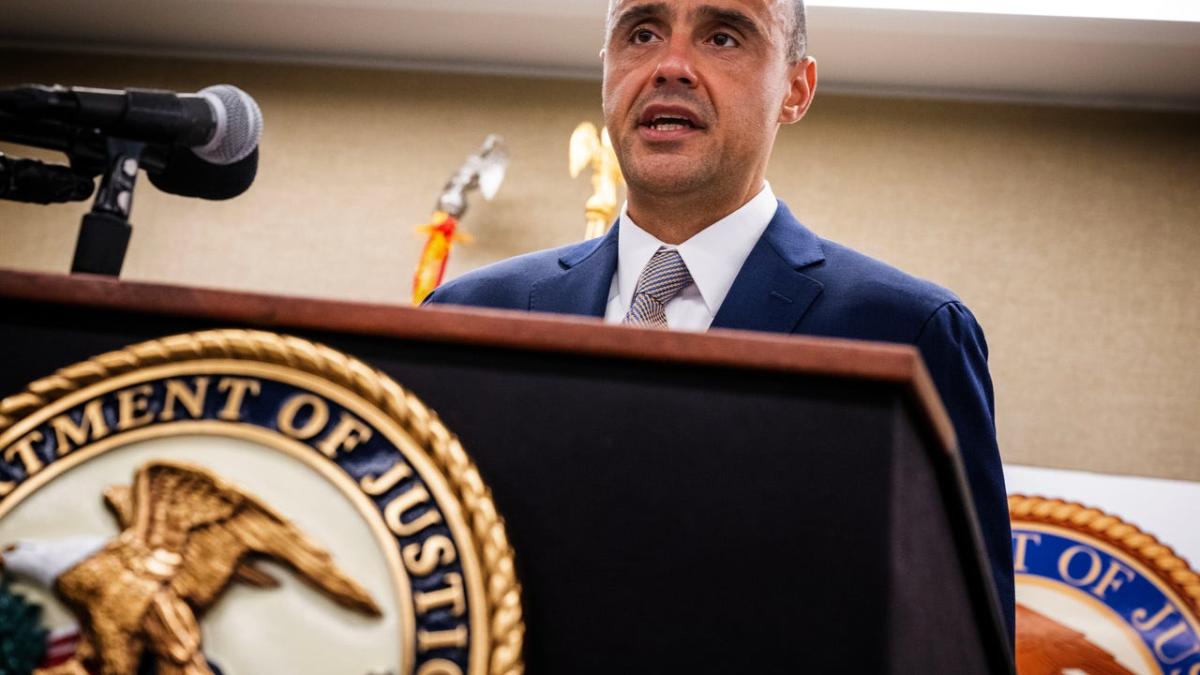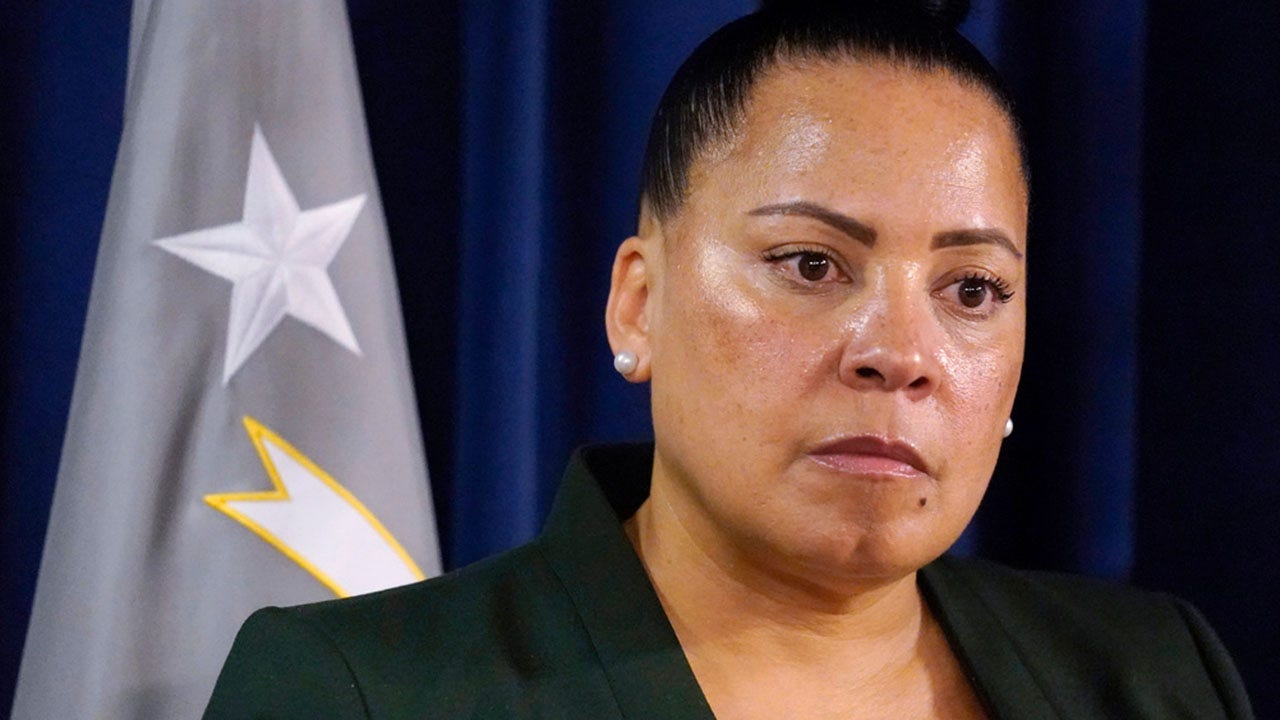
US Attorney in DC Looks to White Collar Pivot After Jan. 6 cases
The US attorney’s office in Washington, which has been buried in Jan. 6 insurrection cases, saw an opening to prioritize bolder white-collar enforcement, according to current and former Justice Department officials.
US Attorney Matthew Graves, a former acting chief of DC’s fraud section and Big Law corporate defense attorney, is expected to put more emphasis on combating economic misconduct such as crypto fraud, federal contracting schemes, and sanctions evasion, the officials say.
“Jan. 6 prosecutors have really taken all the office resources, to put it lightly, but now if there’s light at the end of the tunnel on those matters, I think you will see him shift his attention to the white-collar area,” said Ronald Machen , who chairs WilmerHale’s litigation and controversy department and as a former US attorney for DC supervised Graves.
Challenges remain for prosecutors in the largest of the Justice Department’s 94 US attorney’s offices even as they’re gradually relieved from the all-hands-on-deck mission of charging individuals who stormed the Capitol.
Hundreds more Jan. 6 cases are still pending and the office must navigate its unique role of prosecuting street crime in the nation’s capital while also pursuing sensitive national security and public corruption matters.
Balancing Act
It’s a balancing act Michael Sherwin confronted when then-Attorney General William Barr installed him as DC’s acting US attorney in 2020. The former financial prosecutor evaluated staffing and cases before determining the “fraud cases were woefully low.”
The emphasis was on public corruption, he said.
Sherwin was moved from a senior political role at Justice Department headquarters to the US attorney slot at a turbulent moment amid the prosecutors of Trump allies Roger Stone and Michael Flynn.
In his early stages of trying to re-energize the white-collar practice, Jan. 6 happened.
“Things got sidetracked with Jan. 6, where I had to pull resources from each section, do triage,” said Sherwin, who now practices at Kobre & Kim. “But look, that shock and awe of the prosecution spike has basically flatlined.”
Enter Graves, who was sworn into the chief prosecutor spot in late 2021, is fresh off a stint as partner at DLA Piper. He would soon lure veteran white-collar attorney Bridget Fitzpatrick, then the chief litigation counsel at the Securities and Exchange Commission, to join him as second-in-command.
Fitzpatrick, in an interview, said the prosecutions were tied to the insurrection still consuming the office. As to the notion that “we haven’t always had a state-of-the-art white-collar practice and that we don’t have one now, I would push back on that a little,” she said.
The District of Columbia’s prosecutors recently resolved several historic financial crime matters, including a Justice Department record recovery of $3.6 billion in stolen bitcoin last year.
She also noted her office’s $3.9 billion settlement with Airbus SE in 2020, the all-time largest foreign bribery resolution.
At the same time, she said the prosecutors rotating out of Jan. 6 responsibilities are well-situated to leverage newly-acquired investigative skills from a pressure-cooker litigation environment.
“There’s been just a tremendous learning curve coming out of those cases that we’re hopeful will permeate all of our traditionally strong practices and make us even better,” Fitzpatrick said.
She pointed to her staff’s success obtaining Jan. 6 defendants’ encrypted communications, a critical feature of DOJ corporate investigations, as an area where they’ll be “ahead of the curve.”
Graves launched a reorganization that designates assistant US attorneys in DC to focus either on Jan. 6 cases or be assigned to a particular section, said sources familiar with the process. It was an effort to let prosecutors concentrate either on insurrection cases or investigations in white-collar and other specialties without distraction.
‘Mixed Success’
While some former DC office leaders speak with pride about its white-collar presence, particularly in government contracting fraud, others say that it has underperformed whenever prior US attorneys repeatedly worked to step up its enforcement.
Spikes in violent crime often prevent prosecutors from pursuing more proactive financial fraud investigations, while the New York districts frequently assert jurisdiction on finance matters and the Eastern District of Virginia tends to have venues in government contracting cases.
Channing Phillips, who first joined the Washington district in 1994 and retired in 2021 as acting US attorney, said “every single one of” the multiple chief DC prosecutors he worked under made efforts to emphasize white-collar investigations.
“And to their credit,” Phillips said. “But you’ve got to have the resources to do it, too. It was a mixed success. You had to convince the agencies that we did have the resources.”
Other former DOJ attorneys said the DC office could build better relationships with law enforcement agents and partnering agencies. Chief among them is the SEC, which already has long partnered with the Wall Street-encompassing Southern District of New York.
“Financial cases” have “always been a struggle” for DC “because for the most part agents will determine where they want to pitch their cases, and the SDNY has such a competitive reputation for handling high-profile financial fraud cases,” said Michelle Bradford, a partner at Barnes & Thornburg and former fraud prosecutor in DC.
Fitzpatrick, who has contacts throughout her prior work at SEC headquarters, said, “We have done as much work as you can to let people know across these spaces that we are open for business.”
Room for Growth
Bradford is also among the veterans of the district who see potential to translate its Jan. 6 successes—such as the sinister conspiracy conviction of Oath Keepers leader Stewart Rhodes—into white-collar cases.
During Jan. 6 litigation, DC prosecutors learned to wade through massive amounts of electronically-stored information while avoiding the discovery of landmines, said Kamil Shields, a former prosecutor in the office who’s now a partner at Sullivan & Cromwell.
“The skillset is then brought to bear in white-collar matters,” said Shields, referring to an e-discovery challenge that’s become prevalent in corporate litigation.
A “disruptive technology task force” convened by the DOJ last month targeting overseas adversaries is an example of how the DC office is equipped to work at the intersection of white collar and national security, said Jessie Liu, a former US attorney in DC who’s now a partner at Skadden.
“That was where I thought,” Liu said, “the office had a lot of room to really seize a piece of the white-collar practice.”
The question of bandwidth remains an issue for the office, even as prosecutors get free from Jan. 6 cases. Diverting resources in response to the district’s elevated violent crime rate will pose a hurdle, just as it has for past US attorneys trying to increase corporate enforcement.
“He’s been distracted by Jan. 6 for the last year and a half,” Machen said of Graves. “Now as you’re coming out of that and want to turn to white-collar crime matters, you still have to assess all of your different law enforcement priorities.”
Related Posts
- Attorney: Man involved in train killing shot in self-defense
- As DA Jason Williams awaits federal tax trial, another former lawyer in his firm is charged | Courts
- Vekos would bring defense attorney experience to county prosecutor's job
- Portage double fatal stabbing was self-defense, attorney says at arraignment
- Man accused in La Crosse shooting was acting in self-defense, attorney says | Crime



